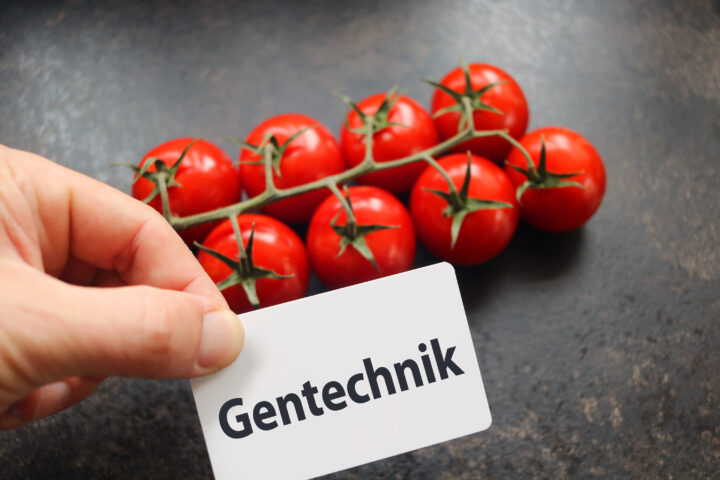
Eating as a pseudo-religion
Prof. Thomas Ellrott from the Georg-August-University in Göttingen spoke at an event of the branch organization Swisscofel about food as a pseudo-religion His thesis: Eating is no longer just the simple intake of calories. Today, food is a lifestyle product that people use to showcase themselves. It's about identity. And to be on the "right side".
Monday, May 23, 2022
Baking a cake for kindergarten has become a minefield for today's parents. Can there still be sugar in there? Can it still contain gluten? The cake should also not contain lactose if possible. And it should be vegan. Professor Thomas Ellrott, head of the Institute of Nutrition Psychology at the Georg-August-University in Göttingen, uses this scenario to describe the difficulties of modern nutrition at the delegate meeting of Swisscofel. The Agricultural Information Service (LID) reported on this. Often, Ellrott says, health and sustainability are cited as the most important motivations for a particular diet. But it's about more.
"Perceived health"
Gluten-free food has experienced a real boom in recent years. According to Ellrott, the sales figures indicate that many people buy gluten-free products that they do not need for health reasons. The number of people diagnosed with gluten intolerance is much lower than the sales figures suggest. Ellrott explains the difference with the concept of "perceived health", which is also known in science as the halo effect. This applies to products that promise health benefits but do not actually deliver them. "When gluten-free is on a product label, many consumers think that it is healthy – strictly speaking, however, it only says that there is no gluten in it," the nutrition psychologist is quoted by the LID as saying.
Eating as a cult
According to Ellrott, "perceived health" does not yet explain today's phenomenon of "staging individualized nutritional styles". Rather, the topic of nutrition is about creating meaning and identity. "There are more and more people who present themselves through the way they eat and who also shape or influence their identity through it," says Thomas Ellrott. In certain circles, nutrition has even received the rank of cult or pseudo-religion: "This means that you present yourself to others through the way you eat – it's about something pseudo-religious," says Ellrott, referring to David Bosshard, former CEO of the Gottlieb Duttweiler Institute. He once said: "Buying at the organic market replaces going to church for parts of society.
"Instagramability"
Ellrott also sees an influence on the increased importance of food in the advent of social media. Pictures of perfectly prepared menus are posted there every day. Food thus becomes a digital status symbol. By presenting their food, people also share their values with the community. According to Ellrott, certain characteristics are associated with the diet. Your own style of nutrition becomes a commitment to the outside, which can develop into a sense of moral superiority.
Reducing complexity
Fixed rules regarding eating behavior also help people to reduce complexity. If you decide to eat vegan or gluten-free, then suddenly many foods are no longer suitable. "This simplifies life – you don't have to make decisions all the time," says Thomas Ellrott. If you succeed in maintaining a path that you have decided on, you will feel self-efficacious. "It's all about the feeling of control," says Ellrott. The control over one's own eating behavior gives the people a good feeling. Health and sustainability are therefore not the only reasons why people choose a particular diet. Equally important aspects, according to the nutritional psychologist, are identity, belonging to a social community, reducing complexity or gaining a sense of control over one's own life.
Sources
Related articles

Residue is not the same as residue
Painkillers like Voltaren are a blessing for us – yet in our rivers they can harm fish. If these were crop protection products, calls for bans would be immediate. It becomes clear that we are applying double standards.

ARTE documentary: Genetic engineering in organic farming?
The ARTE documentary “Genetic engineering in organic farming?” examines key controversial questions of modern agriculture: Is the general exclusion of new breeding technologies still up to date? Can the resistance of organic farming be justified scientifically?

The Great Suffering of Farmers
Fire blight, Japanese beetles, or grapevine yellows – farmers in Valais, too, are increasingly feeling helpless in the face of the threats posed by nature. More and more often, they lack the means to effectively protect their crops. This makes it all the more important for the Federal Council to place a pragmatic balancing of interests at the forefront when setting threshold values.

'Tomatoes on your eyes'
The submitted “Food Protection Initiative” calls for “GMO-free food.” Leaving aside this illusory demand, its adoption would mean more bureaucracy, more trade barriers, and less innovation. The Swiss Farmers’ Union describes the proposal as “unnecessary” and warns of a setback to the goal of achieving an even more sustainable agriculture.

